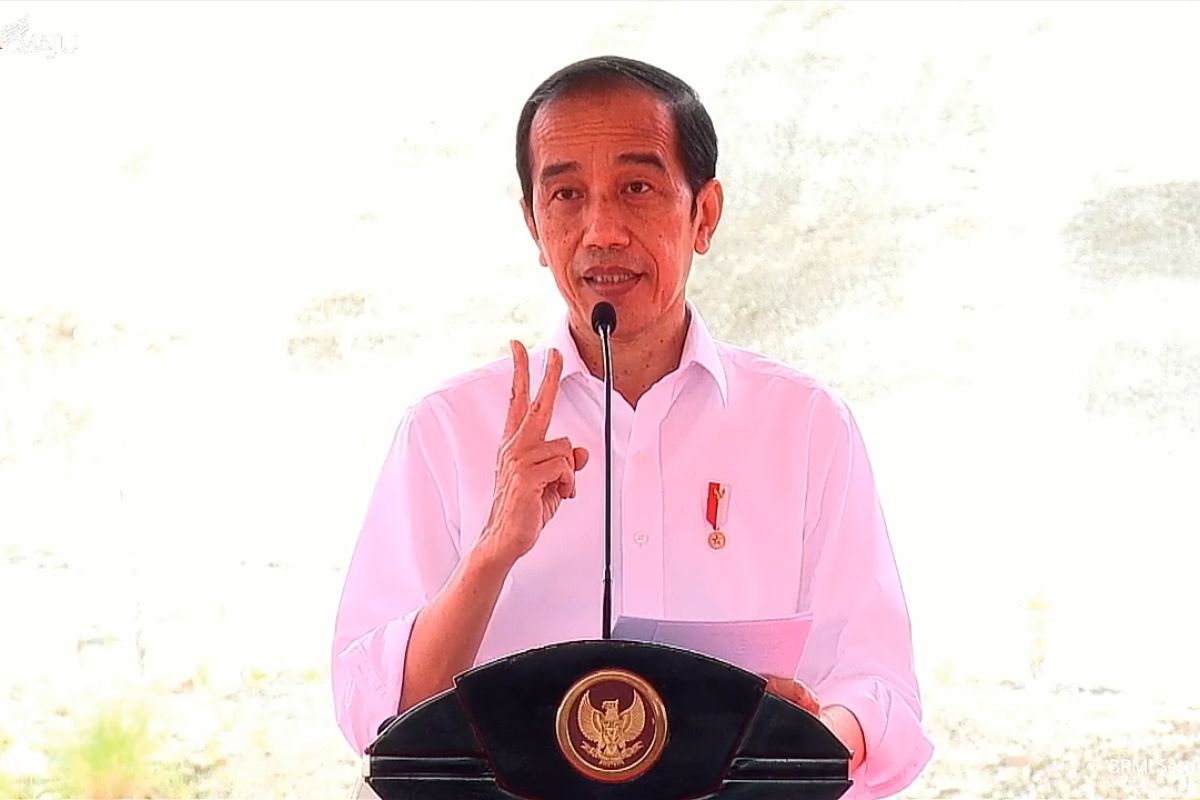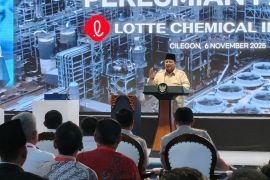Efforts to conduct judicial reforms through the implementation of a modern justice system are imperativeJakarta (ANTARA) - President Joko Widodo (Jokowi) voiced aspirations of the Supreme Court conducting modern judicial reforms to offer legal certainty to the public.
"Efforts to conduct judicial reforms through the implementation of a modern justice system are imperative," the president noted at the State Palace in Jakarta, Wednesday.
Jokowi delivered the statement while attending the virtual Special Plenary Session of the 2020 Supreme Court Annual Report. During the session, the president was also accompanied by Minister of Law and Human Rights Yasonna H. Laoly.
"As a bastion of justice, the Supreme Court can realize legal certainty for the public, business actors, and investors through decisions that reduce disparity in punishment," the head of state remarked.
Jokowi affirmed that with better performance and reputation, the Supreme Court can deliver landmark decisions by exploring the values and sense of justice in the community, so that the judiciary becomes an increasingly trusted institution.
"The momentum of this pandemic can be seized to conduct a fundamental transformation through fundamental ways," the president remarked.
Jokowi emphasized that breakthroughs by judicial administrators are deemed crucial to prove that the judicial system in Indonesia is able to adapt quickly and continue to innovate, so that it can serve the public faster and better.
"However, I would like to remind you that accelerating the use of technology is not the final goal. Accelerating the use of technology is an entry point for a broader transformation, greater transformation in the administration of justice to create a modern justice system," the president affirmed.
President Jokowi also requested that although the institution had handled several cases, there was no compromise on the quality of decisions.
"I am optimistic that the Supreme Court would continue to improve the quality of the e-Court application," the president stated.
These qualities encompass the standardization of obligations of the parties, online examination of witnesses and experts, a copy of the verdict or e-Verdict, and the expansion of the e-Court application for special civil cases.
In his report, Chief Justice of the Supreme Court HM Syarifuddin stated that the case burden on the Supreme Court in 2020 was recorded at 20,761, comprising 20,544 cases submitted while 217 cases were remaining from 2019.
From this total burden, the Supreme Court produced 20,562 rulings, while the remaining cases in 2020 reached 199. The case pile was the lowest-ever recorded in the history of the Supreme Court, thereby lifting the productivity rate in resolving cases in 2020 to 99.04 percent.
Related news: Jokowi observes COVID-19 immunization for traders at Tanah Abang
Related news: Jokowi confident INA garnering investors' trust to speed development
Close
EDITED BY INE
Translator: Desca L, Azis Kurmala
Editor: Fardah Assegaf
Copyright © ANTARA 2021












